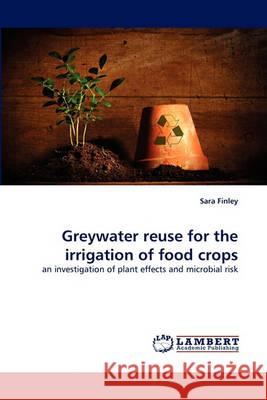Greywater Reuse for the Irrigation of Food Crops » książka
Greywater Reuse for the Irrigation of Food Crops
ISBN-13: 9783838366760 / Angielski / Miękka / 2010 / 76 str.
In many parts of the world, water scarcity represents a significant challenge to human health and environmental integrity. At the same time, irrigated agriculture accounts for over 70% of global freshwater use. As the world's population grows and prosperity spreads, water demands increase and multiply without the possibility for an increase in supply. The mounting demand on this finite and invaluable resource has inspired creative strategies for freshwater management, including innovative techniques for wastewater recycling. Greywater reuse is one such strategy, and its usefulness to fulfill non-potable water needs should be thoroughly investigated. This study is a preliminary investigation of the potential effects of reusing domestic greywater for the irrigation of vegetable crops at the household level. It focuses on plant health and productivity effects, and explores the potential for microbial contamination of edible crops by bacteria-rich greywater.
In many parts of the world, water scarcity represents a significant challenge to human health and environmental integrity. At the same time, irrigated agriculture accounts for over 70% of global freshwater use. As the worlds population grows and prosperity spreads,water demands increase and multiply without the possibility for an increase in supply. The mounting demand on this finite and invaluable resource has inspired creative strategies for freshwater management, including innovative techniques for wastewater recycling. Greywater reuse is one such strategy, and its usefulness to fulfill non-potable water needs should be thoroughly investigated. This study is a preliminary investigation of the potential effects of reusing domestic greywater for the irrigation of vegetable crops at the household level. It focuses on plant health and productivity effects, and explores the potential for microbial contamination of edible crops by bacteria-rich greywater.











